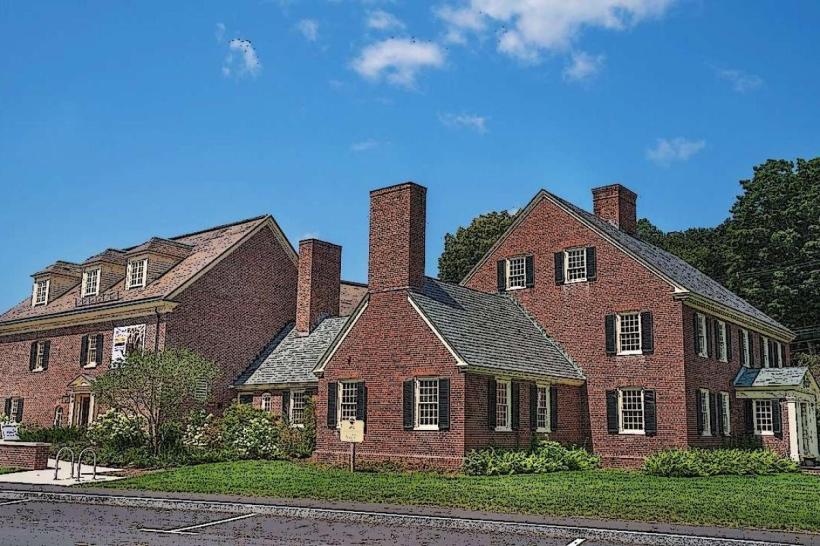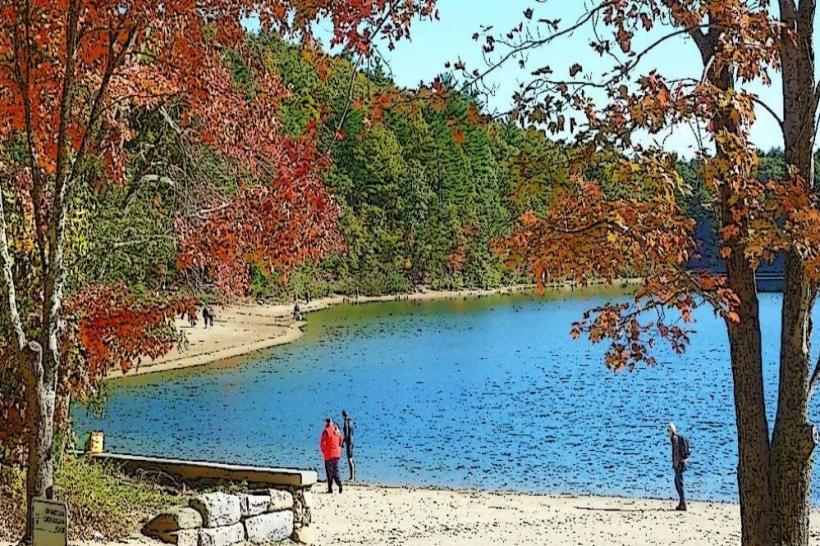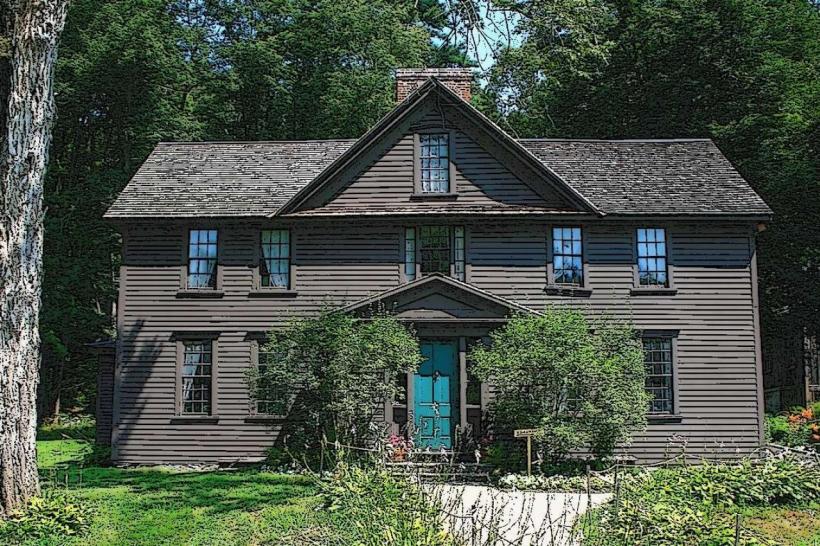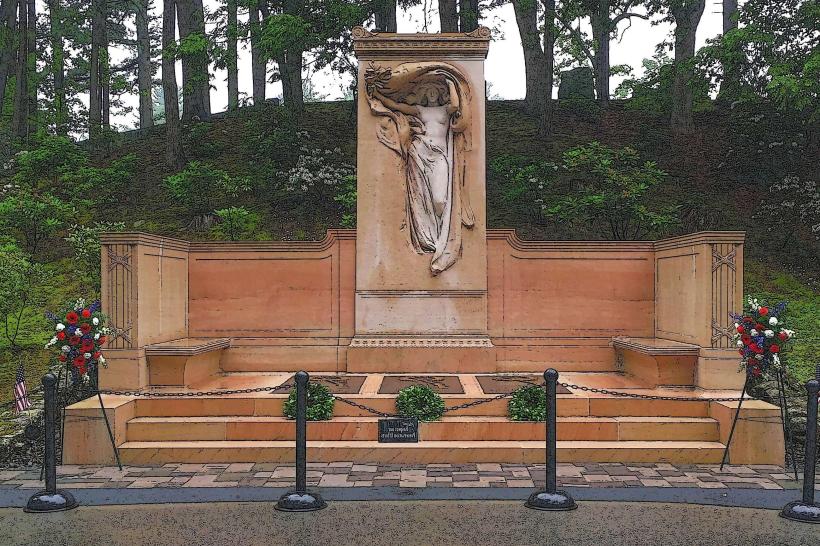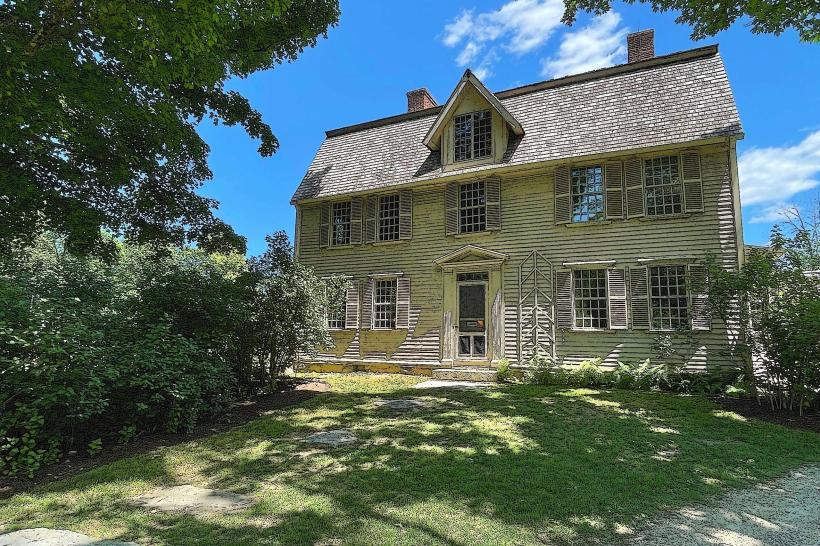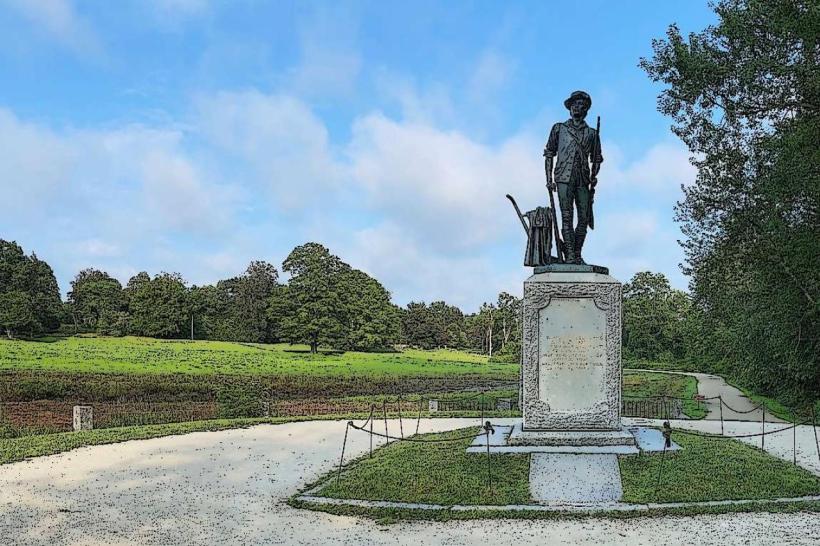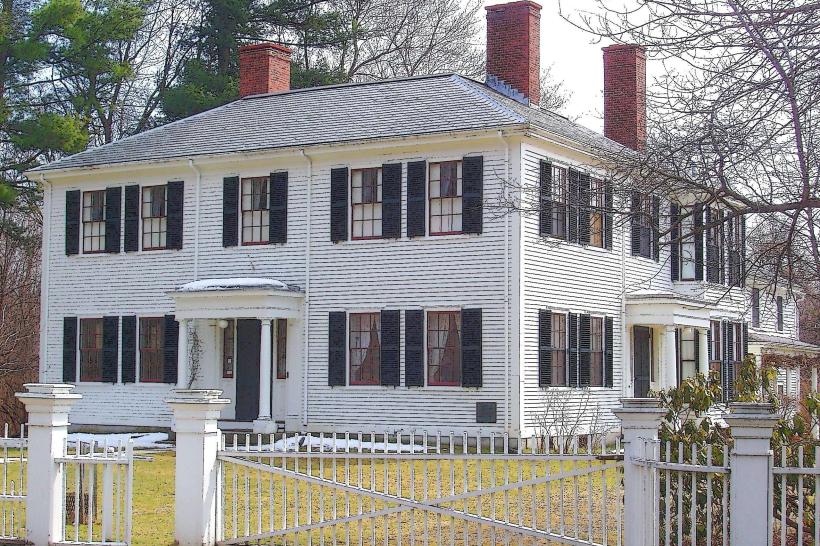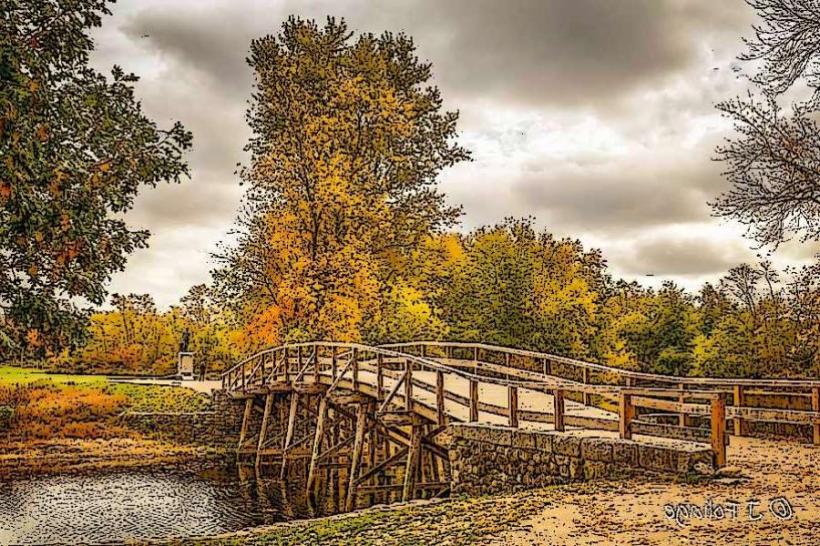Information
Landmark: Concord Center Historic DistrictCity: Concord
Country: USA Massachusetts
Continent: North America
Concord Center Historic District, Concord, USA Massachusetts, North America
The Concord Center Historic District is the vibrant, historically rich heart of Concord, Massachusetts, embodying over three centuries of American history, culture, and literary heritage. This district represents more than just a collection of buildings-it is a living tableau of pivotal moments in the nation’s founding, a hub of 19th-century American intellectualism, and a modern cultural and commercial center that continues to thrive today.
Historical Significance
Concord Center is integral to the story of early America, especially its revolutionary and literary legacies. The district’s significance is anchored by several key historic landmarks and sites that collectively tell the story of Concord’s role in shaping the United States:
Old North Bridge: This iconic site is where, on April 19, 1775, the first significant military engagement of the American Revolutionary War took place. The colonial militia’s successful stand against British troops at this bridge marked a turning point and sparked the full-scale war for independence. The bridge and its surrounding area are preserved as part of the Minute Man National Historical Park.
The Old Manse: Built in 1770, this house has deep literary and historical connections. It was the home of Ralph Waldo Emerson’s grandfather, the town’s first minister. Nathaniel Hawthorne lived here briefly, and it is where Emerson and his wife famously honeymooned. The house symbolizes Concord’s fusion of revolutionary fervor and intellectual ferment.
Orchard House: The home where Louisa May Alcott wrote Little Women, a foundational work of American literature. The house retains much of its original furnishings and offers a window into the daily life and values of the Alcott family and their Transcendentalist milieu.
The Wayside: A unique historic home that housed several notable authors, including Louisa May Alcott, Nathaniel Hawthorne, and Margaret Sidney. This residence reflects Concord’s exceptional status as a nurturing ground for American literary giants.
Sleepy Hollow Cemetery: The final resting place of many of Concord’s illustrious residents, including Emerson, Thoreau, the Alcotts, and Hawthorne. The cemetery itself is a landscape of cultural memory and artistic significance, featuring striking monuments and serene natural beauty.
Concord Museum: Established in 1886, the museum preserves and interprets the town’s rich history, from Native American heritage and colonial times through the Revolution and the 19th century’s literary renaissance. It houses important artifacts like the original British surrender cannon and personal effects of Concord’s famed residents.
Architectural and Cultural Landscape
The district encompasses a walkable area that includes buildings and streetscapes dating from the 18th to the 20th centuries. Architecturally, it showcases a variety of styles, including Colonial, Federal, Greek Revival, and Victorian, reflecting the town’s continuous growth and changing tastes over centuries. These structures, both public and private, maintain the charm of a classic New England town center.
Public spaces such as the Town Common, Main Street, and various parks provide settings for community events, farmers markets, and seasonal celebrations that maintain a vibrant civic life.
Cultural District Designation and Contemporary Role
In 2012, Concord Center was officially designated a Massachusetts Cultural District, recognizing it as a concentrated area of artistic, historical, and cultural activity. This status emphasizes Concord Center’s role as a dynamic place where heritage, arts, and commerce intermingle.
The district today features:
Art Galleries and Studios: Spaces like the Umbrella Arts Center offer exhibitions, workshops, and classes, enriching the local and visitor experience with contemporary creative expression.
Performing Arts Venues: The 51 Walden Performing Arts Center hosts theater productions, concerts, and lectures, continuing Concord’s legacy as a site of intellectual and artistic engagement.
Independent Shops and Boutiques: A variety of locally owned businesses line the streets, offering artisan goods, books, antiques, and specialty products, sustaining the economic vitality and unique character of the town center.
Restaurants and Cafés: A diverse culinary scene caters to residents and tourists alike, from cozy cafés to fine dining, many focusing on local and sustainable ingredients.
Community Institutions: The Concord Free Public Library, civic buildings, and visitor centers play vital roles in education, outreach, and hospitality.
Visitor Experience and Amenities
The district is highly accessible and visitor-friendly:
Historic Walking Tours: Daily tours provide guided introductions to the district’s landmarks, including the stories behind key buildings, monuments, and public spaces.
Visitor Center: Located at 58 Main Street, it offers maps, literature, restrooms, bike rentals, and expert staff ready to assist visitors in planning their itineraries.
Parking and Transportation: Several public parking lots and street parking options are available. The district is also reachable by regional public transit and is pedestrian-friendly.
Events and Festivals: Throughout the year, Concord Center hosts various cultural events-book festivals, art fairs, historical commemorations, and holiday celebrations-that draw community members and tourists alike.
Summary
The Concord Center Historic District is a multifaceted jewel that weaves together threads of revolutionary history, American literary achievement, and vibrant contemporary culture. It stands as a testament to Concord’s unique place in the nation’s story and continues to be a lively, welcoming space for learning, exploration, and community. Visitors experience a rare combination of preserved historical authenticity and modern vitality, making Concord Center a quintessential New England destination.

